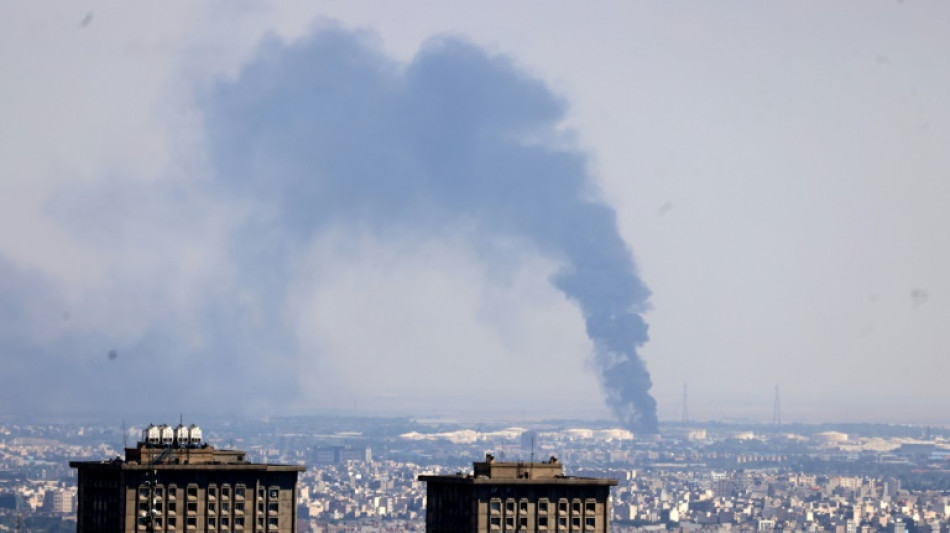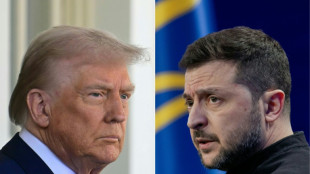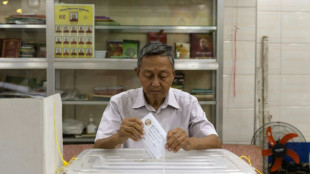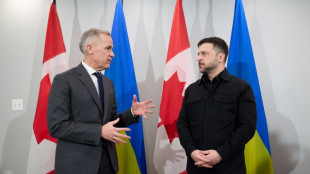

Escalation or diplomacy? Outcome of Iran-Israel conflict uncertain
Israel has inflicted damage on strategic sites and killed key figures within Iran's military leadership during five days of aerial attacks that showed no sign of abating Tuesday, but whose ultimate outcome is unclear, analysts say.
Israel says its offensive aims to eliminate Iran's nuclear programme and ballistic missile production capabilities.
The Israeli government has not ruled out triggering a wholesale removal of the clerical system set up after the 1979 Islamic Revolution that has remained implacably opposed to Israel's existence.
Yet even if Israel succeeds in ousting Ayatollah Ali Khamenei or killing him, the supreme leader will not necessarily be replaced by more moderate forces and the risk exists of further escalation, analysts warn.
Diplomacy, meanwhile, remains at a standstill as Israel pounds Iranian targets and Iran hits back with its own strikes on its foe, heightening fears of a wider and prolonged conflict.
- 'Existential' crisis -
In television interviews, Israeli Prime Minister Benjamin Netanyahu has not ruled out killing Khamenei, although a US official said President Donald Trump had vetoed assassinating the supreme leader.
Israel, whose intelligence service is widely acknowledged to have deeply penetrated Iran, has killed a host of key figures including the head of the Revolutionary Guards and armed forces in a huge blow.
"This is existential, the most profound of all the crises the Islamic republic has faced," said Sanam Vakil, director of the Middle East and North Africa programme at the London-based Chatham House think tank.
"This is designed to decapitate the leadership of the Islamic republic and degrade the nuclear and broader capabilities of the regime," she said.
Rather than an immediate turnaround, what could result is "an unravelling over time" with the Israeli action putting an "accelerant" on a process of change already happening within Iran due to dissatisfaction with the authorities, she said.
For Jeffrey Lewis, director of the East Asia Non-proliferation Program at the Middlebury Institute of International Studies, Israel's military operation "is about regime change and not eliminating the nuclear programme".
"If the regime falls, then it will be an enormous success," he said of the operation Israel dubbed "Rising Lion" -- a likely reference to the beast which adorned the pre-revolutionary Iranian flag.
- Proxies -
Even in the event of a change in leadership, Gregory Brew, senior analyst for Iran and energy at risk analysis firm Eurasia Group, said Khamenei could be replaced with a figure who may be even more hardline and pose a greater danger to Israel in the conflict's aftermath.
"Kill Khamenei, make him a martyr to the hardliners and empower a new supreme leader who may be much less risk averse. Or leave him to die or resign in likely disgrace after the war, his credibility in ruins. Which move produces a government better suited to Israel's interests?" Brew said.
Iran's ability to cause regional mayhem through its proxies Hezbollah in Lebanon and Hamas in the Gaza Strip has been severely degraded by Israeli operations since October 2023.
But Tehran still backs the Huthi rebels in Yemen who have attacked Gulf shipping, while Iran can strike energy facilities or undertake cyberattacks.
"It remains to be seen if Iran will seek to engage in grey zone activities, including cyberattacks," said analysts at US-based think tank Soufan Center.
- Nuclear diplomacy -
Israel's air strikes have put an end, for now, to the latest track of talks seeking to end the standoff over the Iranian nuclear programme, which the West and Israel fear is aimed at making the atomic bomb.
Analysts say the future of any diplomatic progress lies with the United States and Trump, who has so far resisted Israeli pressure to become directly involved in the conflict.
"Netanyahu's goal is to bring Trump into the war," said David Khalfa, co-founder of the Atlantic Middle East Forum think tank.
"But I think he will stand back and let Israel continue to weaken Iran to force it to negotiate" with the Islamic republic in a weaker position, Khalfa said.
Israel has hit the Natanz nuclear site during its attacks, but has not been able to strike the Fordo enrichment facility, which is located deep underground. Analysts believe Israel could only damage it with the help of American bunker-busting bombs.
Ali Vaez, Iran analyst at the International Crisis Group, argued in an article for Foreign Affairs that Israel would be unable to wipe out the Iranian nuclear programme even in a prolonged conflict.
"A diplomatic settlement represents the best and most sustainable way for Trump to avoid both a nuclear Iran and a protracted military entanglement," Vaez said.
N.Jonsson--StDgbl






